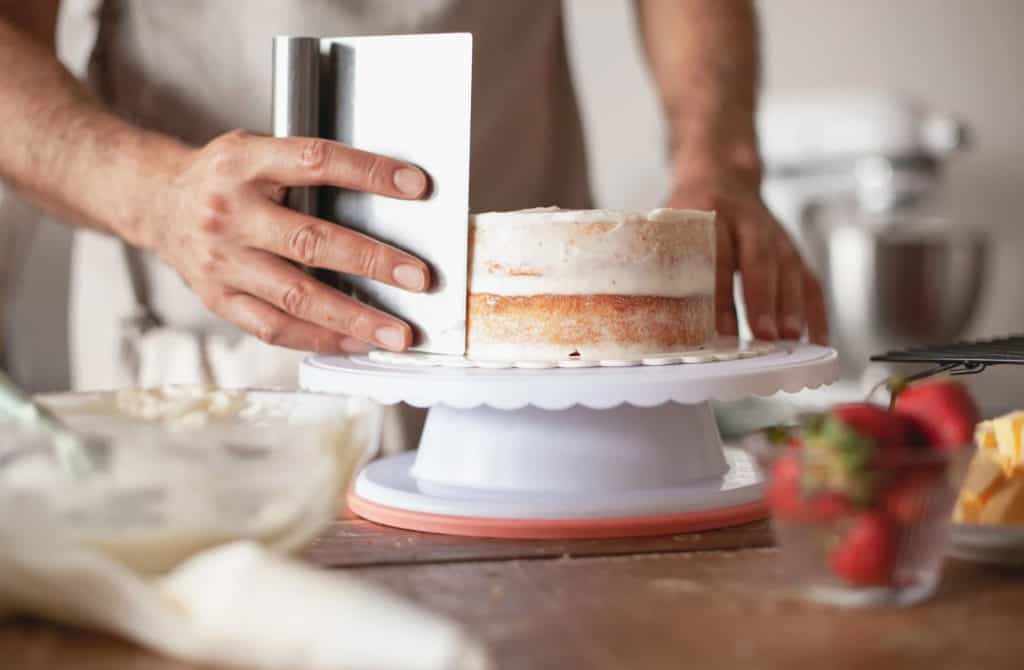How a small baking show turned into one of the most popular TV shows in the UK? People sometimes associate reality TV with arguments, bright lights, and people yelling at one another about wasted dinners. However, everything changed when The Great British Bake Off (GBBO, as its fans call it) debuted. A large tent in the middle of nowhere, a few bakers, and a plenty of cakes, smiles.
How did it all begin, then? How did a basic baking show become so popular in British culture? Let us have a look.
A Tent and a Sweet Idea
Two television producers, Richard McKerrow and Anna Beattie, came up with the concept for The Great British Bake Off. They intended to create a program that emphasized authentic home baking in the late 2000s. They’re the easy, delicious baked goods that individuals prepare at home, not the fancy ones created by chefs. Their goal was to identify the finest amateur baker in the UK and share their experiences.
The format of the show was clear: each week, a group of amateur bakers compete in various baking challenges. There was a weekly theme, such as bread, cakes, or pastries. Bakers were required to finish three tasks:
- Signature Bake: something they are all familiar with and like creating
- Technical Challenge: an unexpected dish that they all had to make on their own with minimal assistance
- Showstopper: a large, imaginative dish that stands out.
The event immediately became a fan favorite due to its picturesque countryside backdrop and soft pastel colors. It turned baking into a fun competition.
The First Hosts: Mary, Paul, Mel, and Sue
Few people were aware of the show when it debuted on BBC Two in 2010. Paul Hollywood and Mary Berry served as the judges. Paul was serious, particularly when it came to bread, while Mary was wise and gentle. They collaborated quite effectively.
Comedians Sue Perkins and Mel Giedroyc served as the hosts. They were honest, hilarious, and friendly. They introduced more than just the bakers. When things went wrong, they gave them hugs, made them laugh, and offered encouragement. Their funny baking jokes and warm attitude improved the show.
Initially, the show was not very well-known. However, more individuals quickly began to watch. It was a huge smash by the second and third seasons. Families gathered to witness it. During the week, friends discussed it. People began to host their own bake-offs at home. It was more than just a television program. It was something that people felt connected to.
A National Favorite
The show had switched to BBC One by season 5. Every week, millions of people watched. Over 15 million people were watching at one time. That’s a large audience for a baking show.
So why was it so popular with everyone? The people, to put it simply. The show’s bakers were compassionate and friendly. They supported one another despite their competition. They wept when someone had to go, and they giggled when someone else succeeded. It was warm and authentic.
Of course, there were also the delicious baked goods. Gorgeous cakes, creative pastries, pies shaped like animals, and artistically designed biscuits. It was entertaining to watch even when things didn’t work out. When someone tossed their melted Baked Alaska in the trash, who could forget?
Additionally, the show inspired more individuals to bake. Stores sold more butter and flour. At home, people experimented with novel recipes. Children requested gifts of baking supplies. The Bake Off has clearly affected people’s perceptions of baking.

Big Changes
Unexpectedly, something occurred in 2016. Following a dispute with the BBC, the show’s production firm, Love Productions, sold it to Channel 4. Fans were concerned after this made headlines. Would there be any changes to the show?
The decision by Mary Berry, Mel, and Sue not to relocate to Channel 4 further altered the situation. Paul Hollywood was the only one who remained. A lot of viewers were depressed. However, they tried the updated version.
The show returned in 2017 with new cast members. Prue Leith became a member. The new hosts were Sandi Toksvig and Noel Fielding. Matt Lucas took Sandi’s place once she left. In 2023, Alison Hammond also joined.
Each new person offered something unique to the performance, but the spirit of it remained consistent. It was still hilarious, kind, and full of delicious baked goods.
The Bake Off Community
The show’s ability to unite people is one of its wonderful qualities. After the show is over, many bakers remain friends. Fans support their new businesses, purchase their cookbooks, and follow them on the internet. Some bakers start their own bakeries or become TV celebrities. With a large following supporting them, others return to their regular lives.
Over time, the show’s diversity also increased. The ages, cultures, and backgrounds of bakers are diverse. It makes no difference where you’re from. You are welcome to join the Bake Off tent if you enjoy baking.
Specials and Other Versions
The show has included numerous entertaining extras over the years. There are celebrity charity episodes, Junior Bake Off, holiday specials, and a behind-the-scenes program called “An Extra Slice.”
Numerous other nations also produced their own versions, such as The Great Australian Bake Off and The Great Canadian Baking Show. The format is universally compatible and easy to use.
Why People Still Love It
The Great British Bake Off is still going strong over a decade later. Bake Off is peaceful and joyful in a world where many shows are noisy and unpleasant. It proves that competition may be friendly. It also serves as a reminder that mistakes are acceptable, particularly when cake is involved.
There is more to the show than just baking. It’s about supporting those who are passionate about something. It’s important to keep trying and learning even when things don’t go as planned. It never fails to make you feel happy.
Final Thoughts
What, then, made The Great British Bake Off such a popular program? It remained faithful to what really mattered. It emphasized people doing what they love, being kind, and being honest. It served as a reminder that, like baking, life is better enjoyed with others.
Don’t worry if you’ve ever gotten upset over a crooked pie or a gingerbread lighthouse. You’re certainly not alone.
